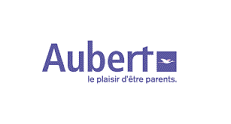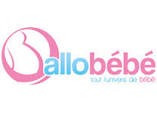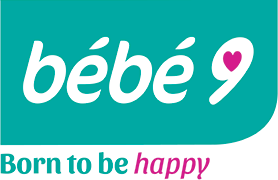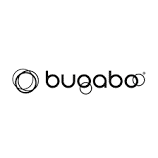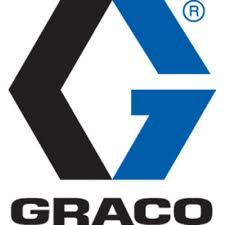Summary
from 2020 and beyond, the global market for baby products, including strollers, has seen a shift in consumer behavior and diverse market dynamics. The baby products market, which was valued at $73.86 billion, is expected to reach $109.13 billion by 2026. More specifically, the stroller market is observing a variety of trends, such as falling birth rates - from 832,799 live births to 753,000 in France - contrasting with the increase in the average budget per baby, which stands at 16,000 euros for the first three years. In the stroller segment, innovative products and eco-friendly options are gaining ground.
While the collaborative second-hand market surged, luxury strollers saw a 3.5% price increase, indicating a demand for high-end products. However, the growth in stroller sales has not paralleled the surge in other juvenile segments, reflecting a dip in market performance for this particular product. Online sales are gaining in importance, with digital platforms being used for both purchasing and information acquisition. Geographic market trends indicate that North Africa, the Middle East, Sub-Saharan Africa and Central Asia offer the greatest potential for growth, due to favorable demographic trends. Despite these opportunities, the French market faces negative dynamics, with stroller sales declining, requiring market adaptability and digital integration strategies for traditional players.
French stroller market dynamics and consumer trends
In recent years, the French stroller market has undergone substantial changes due to demographic shifts, evolving consumer behavior and increased competitiveness driven by the rise of online shopping and the collaborative economy. The annual size of the French stroller market can be estimated at between 200 and 210 million euros, thanks to the historic presence of renowned French brands. One of the most striking trends in this market is the balance between a falling birth rate and a rising average budget per baby. France has seen a drop in the birth rate, leading to a consequent fall in volume demand.
Nevertheless, the average budget per baby has risen to around 16,000 euros for the first three years, with a significant proportion devoted to strollers, calculated at approximately 800 euros per baby. Consumers are increasingly turning to the internet for purchasing decisions and information. It has been observed that around 73% of parents have purchased childcare products online, an increase on previous years. The internet serves not only as a marketplace, but also as a platform for advice, recommendations and opinions from other consumers and influencers, thus influencing the purchasing decisions of new parents.
Another emerging trend is the rise of collaborative consumption. The second-hand market, bartering and stroller rentals have gained ground, not only for economic reasons, but also due to increased environmental awareness and a penchant for vintage items. Traditional retailers have responded to this development by entering the collaborative market space, offering marketplaces where second-hand items are available for purchase.
The stroller market in France is also marked by a growing demand for quality, innovative features, responsible production and ethical consideration on the part of brands. Consumers value honesty, respect and responsibility, which translates into a demand for organic and sustainable products that are safe and durable for children.
Given these market dynamics, stroller manufacturers and retailers are developing strategies to counter the impact of a lower birth rate and the competitive threats of the collaborative economy. Securing customer loyalty through increased digital engagement and expanding into new territories beyond France are just some of the strategies companies are exploring to maintain their market presence and growth. The future of the stroller market is likely to be shaped by these trends, in particular the digitization of consumer experiences, the expansion of responsible and innovative product offerings, and the way companies adapt to meet the needs of increasingly informed and connected consumers.
Key players in the stroller market: a competitive landscape
The stroller market, which forms an integral part of the wider range of childcare products, boasts a large number of players, each leaving a distinct mark through innovation, branding and service. Among them, a number of companies have carved out a place for themselves, both locally and internationally. The companies featured below reflect the diversity of this competitive market, and highlight the manufacturers and distributors who are shaping the industry's present and future.
- Bébé Confort - A pioneer in comfort and safety A well-established name in the childcare market, Bébébé Confort is synonymous with safety and convenience when it comes to baby strollers and accessories. The brand has earned a reputation for providing reliable products for infants and toddlers, with an emphasis on ergonomic design that ensures little ones are protected and comfortable throughout their developing years.
- Babyzen - Revolutionizing urban mobility A relatively young but dynamic player, Babyzen took the market by storm with its Yoyo stroller, a model that won hearts with its innovative, compact design suited to hectic urban life. The brand's commitment to designing a stroller that's easy to transport has seen it adopted by urban parents in many countries, making it a success story in the field of modern childcare solutions.
- Renolux - Quality craftsmanship with a French touch Renolux, another French brand, stands out for its masterfully crafted strollers, which combine the finest materials with French elegance. With a focus on durability and chic aesthetics, Renolux has found its place among parents looking for strollers that promise long-term service without compromising on style.
- Aubert - A trusted multi-brand retailer From a distribution point of view, Aubert has secured a prime position for itself by offering a wide range of stroller brands under one roof. Its commitment to accessibility and variety has made it a destination of choice for parents navigating the myriad options on the stroller market.
- Bébé 9 - Your neighborhood childcare expert Bébé 9 operates a network of franchise stores specializing in baby and toddler products, including strollers. Their friendly, knowledgeable service and varied brand selection provide a family-friendly shopping environment.
- Autour de Bébé - Surrounding infants with care Autour de Bébé completes the landscape of specialist retailers by presenting an assortment that explores the breadth of choice available in strollers. Their hands-on approach to customer orientation reflects the company's level of stroller expertise.
to understand this market
Detailed content
 Inforamtion
Inforamtion
- Number of pages : 30 pages
- Format : Digital and PDF versions
- Last update : 03/12/2021
 Summary and extracts
Summary and extracts
1 Market overview
1.1 Market definition
The stroller is a means of transport for small children, usually under the age of 4. Invented in 1733, the stroller consists of a steel or aluminium frame supported by wheels and a system of handles or handlebars to move the stroller forward and to steer it.
The stroller market is part of the broader market for baby products and accessories and more precisely the large childcare which includes car seats, strollers and high chairs.
There are different types of strollers depending on their characteristics. The main ones are the following
- The stroller cane
- The stroller combined
- The stroller 3 wheels (or all-terrain)
- The stroller multiple
Moreover, the strollers market is divided into several categories of players: raw material suppliers, manufacturers, and distributors.
Some French brands are well known on the world market, such as Bébé Confort, Babyzen and Rénolux. Similarly, the reach of French distributors Aubert, Bébé 9 and Autour de Bébé is international.
Being a product intended for young children, the production and sale of strollers is strictly regulated. This regulation evolves as the innovations that are appearing on the market: alongside the traditional products, there is now a significant offer of more modern, compact pushchairs that offer functionalities that go beyond their traditional use (mobile phone charging, for example)
In addition, the demand is linked to the birth rate, which has been declining for various years but which is accompanied by an increase in the average budget per baby. On the other hand, consumers are gradually and noticeably turning to second-hand products. At the same time, stroller prices increased by 3.5% between 2017 and 2018 due to the upmarket strollers on the new housing market, but this positive price dynamic does not seem to be enough to compensate for the first two phenomena
Indeed, stroller consumption is declining the growth in sales of large juvenile products in 2018 was driven by high chairs and car seats, while stroller sales decreased by 1.9% in value in 2018. However, there are strategies for market players to face these threats, including the integration of collaborative consumption in their business model or the strengthening of their digital strategy.
1.2 A growing global market with multiple opportunities
All product categories combined, the global baby products market size, is estimated at USD **.** billion in **** and estimates are as high as ***.** billion in ****. [***]
P specifically, the global market for strollers and prams was worth US$*.*** billion in **** and, with a CAGR of *.*%, is expected to represent *.* billion by ****. [***]
Furthermore, there ...
1.3 A French market that must adapt to counter the negative dynamic
According to the GFK, the French market for childcare articles was worth ***.* million euros in ****.
While sales of childcare articles fell by *.*% in volume, they remained relatively stable in value, as did sales of pushchairs, which fell by *.*% in volume and *.*% in value. This difference in the evolution of sales volume ...
1.4 Imports exceed exports
Globally, China is the largest exporter of strollers with an exported value in **** equal to US$**** million Although France is the **th largest exporter in the world, it is the *th largest importer, the first being the United States. It is largely dependent on other European countries, particularly the United States, ...
2 Analysis of the demand
2.1 A drop in the birth rate barely offset by the increase in the average budget per baby
For at least a decade, the decline in the birth rate is regular. This is shown in the graphs below. While the birth rate and number of live births were **.* and ****** respectively in ****, they were equal to **.* and ****** in ****.
Birth rate France, ****-****, per **** inhabitants INSEE
However, this decline in the ...
2.2 A market of digital natives
Stroller purchases on the Internet are increasing
The Institut des Mamans reveals that **% of parents surveyed have already bought childcare items on the Internet in July ****, which is * points more than in ****. While specialist stores are widely preferred for buying a stroller, online sites are the third favourite place to buy ...
2.3 Second-hand, rental and upmarket: the new trends
The boom in the collaborative market
New consumer trends have emerged in the stroller market in recent years: whether it be through the purchase or resale of second-hand items, bartering or lending between individuals or by renting items. Consumers are looking to optimize their budget. The life span of strollers is ...
3 Market structure
3.1 Production and distribution
The strollers market is divided into several players, which can be classified as follows:
Suppliers of raw materials (***) Manufacturers (***) Distributors (***)
Strollers are complex assemblies, made of more than ** pieces of metal, plastic and other materials, riveted together. Once manufactured, they have to pass safety tests in laboratories that cost over a ...
3.2 Geographic distribution of specialty stores
There are more than **,*** shops in France catering for children aged * to * years, including *,*** childcare shops. Although it is difficult to identify only those that sell pushchairs, the map below provides the distribution of the outlets selling childcare products, and therefore gives an idea of the distribution of stores offering pushchairs ...
3.3 The rise of the collaborative market
Traditional retail chains are now largely challenged by new modes of consumption, namely the collaborative consumption. This transformation particularly affects the market for pushchairs, which are a major investment and whose life span is generally much longer than the period of use.
The collaborative market is divided into multiple consumption patterns. ...
3.4 Possible strategies for dealing with competition
Traditional players, while still dominating the strollers market, are facing challenges and threats that, however, it is possible to adapt. Indeed, while the decline in the birth rate is weighing on the strategy of conquest, the increase in the average budget per baby is an avenue for growth as it may ...
4 Analysis of the offer
4.1 Type of strollers
Source: ****
There are also strollers for infants and toddlers and strollers designed for city life.
4.2 A generalized move upmarket visible through price increases
Prices are extremely varied and range from less than *** euros to more than **** euros. However, over one year, between October **** and ****, average stroller prices have increased by *.*%. This price increase, which applies to all childcare articles, is explained in particular by a general upmarket positioning. [***]
Indeed, premium brands are gaining ground, ...
5 Regulation
5.1 Regulations
As with any product for babies or children, the stroller market is subject to strict rules.
These rules are established by the decree No. **-**** of ** December **** on childcare
Updated by the notice of the published in the Official Journal on March **, ****, this decree establishes safety requirements, namely: stability of the ...
 List of charts
List of charts
- Main business partners in the stroller market
- Value of exports and imports of strollers
- Number of live births
- Birth rate
- Where did you buy your stroller?
All our studies are available online in PDF format
Take a look at an example of our research on another market!
Latest news
Companies quoted in this study
This study contains a complete overview of the companies in the market, with the latest figures and news for each company. :
 Choosing this study means :
Choosing this study means :
Access to more than 35 hours of work
Our studies are the result of over 35 hours of research and analysis. Using our studies allows you to devote more time and added value to your projects.
Benefit from 6 years' experience and over 1,500 industry reports already produced
Our expertise enables us to produce comprehensive studies in all sectors, including niche and emerging markets.
Our know-how and methodology enable us to produce reports that offer unique value for money.
Access to several thousand articles and paid-for data
Businesscoot has access to all the paid economic press as well as exclusive databases to carry out its market research (over 30,000 articles and private sources).
To enhance our research, our analysts also use web indicators (semrush, trends, etc.) to identify market trends and company strategies. (Consult our paying sources)
Guaranteed support after your purchase
A team dedicated to after-sales service, to guarantee you a high level of satisfaction. +44 238 097 0676
A digital format designed for our users
Not only do you have access to a PDF, but also to a digital version designed for our customers. This version gives you access to sources, data in Excel format and graphics. The content of the study can therefore be easily retrieved and adapted for your specific needs.
 Our offers :
Our offers :
the stroller market | France
- What are the figures on the size and growth of the market?
- What is driving the growth of the market and its evolution?
- What is the positioning of companies in the value chain?
- Data from several dozen databases
Pack 5 études (-15%) France
- 5 études au prix de 75,6€HT par étude à choisir parmi nos 800 titres sur le catalogue France pendant 12 mois
- Conservez -15% sur les études supplémentaires achetées
- Choisissez le remboursement des crédits non consommés au terme des 12 mois (durée du pack)
Consultez les conditions du pack et de remboursement des crédits non consommés.





 Leboncoin: a $12 billion bid for the classified ads parent company - 22/11/2023
Leboncoin: a $12 billion bid for the classified ads parent company - 22/11/2023
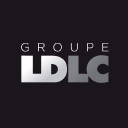 LDLCroissance returns to growth - 26/10/2023
LDLCroissance returns to growth - 26/10/2023
 The inventor of the Yoyo stroller wants to revolutionize the folding bike - 05/10/2023
The inventor of the Yoyo stroller wants to revolutionize the folding bike - 05/10/2023
 Smyths Toys soon to include a nursery range - 28/08/2023
Smyths Toys soon to include a nursery range - 28/08/2023


